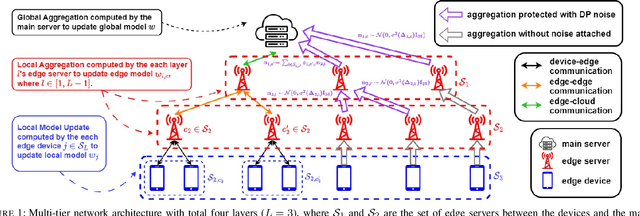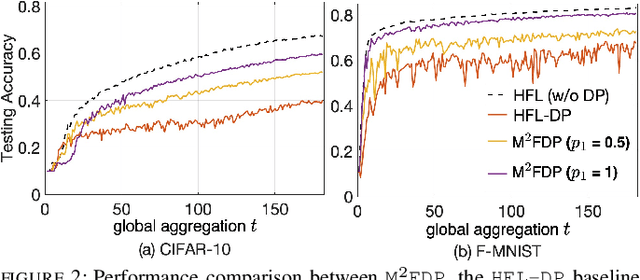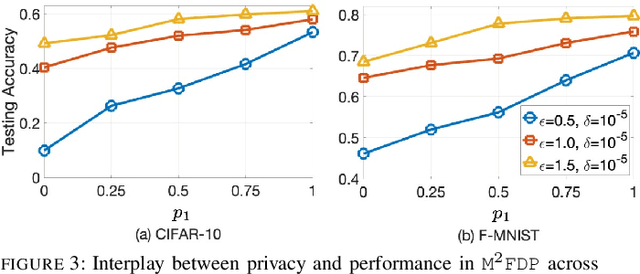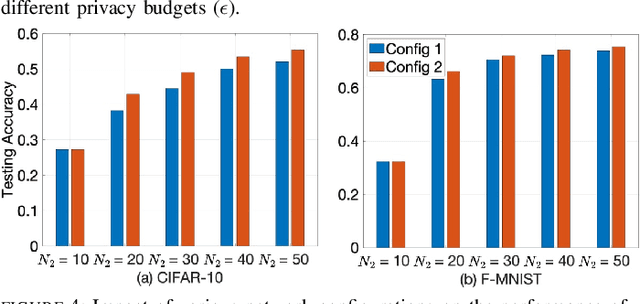Differential Privacy in Hierarchical Federated Learning: A Formal Analysis and Evaluation
Paper and Code
Jan 21, 2024



While federated learning (FL) eliminates the transmission of raw data over a network, it is still vulnerable to privacy breaches from the communicated model parameters. In this work, we formalize Differentially Private Hierarchical Federated Learning (DP-HFL), a DP-enhanced FL methodology that seeks to improve the privacy-utility tradeoff inherent in FL. Building upon recent proposals for Hierarchical Differential Privacy (HDP), one of the key concepts of DP-HFL is adapting DP noise injection at different layers of an established FL hierarchy -- edge devices, edge servers, and cloud servers -- according to the trust models within particular subnetworks. We conduct a comprehensive analysis of the convergence behavior of DP-HFL, revealing conditions on parameter tuning under which the model training process converges sublinearly to a stationarity gap, with this gap depending on the network hierarchy, trust model, and target privacy level. Subsequent numerical evaluations demonstrate that DP-HFL obtains substantial improvements in convergence speed over baselines for different privacy budgets, and validate the impact of network configuration on training.
 Add to Chrome
Add to Chrome Add to Firefox
Add to Firefox Add to Edge
Add to Edge